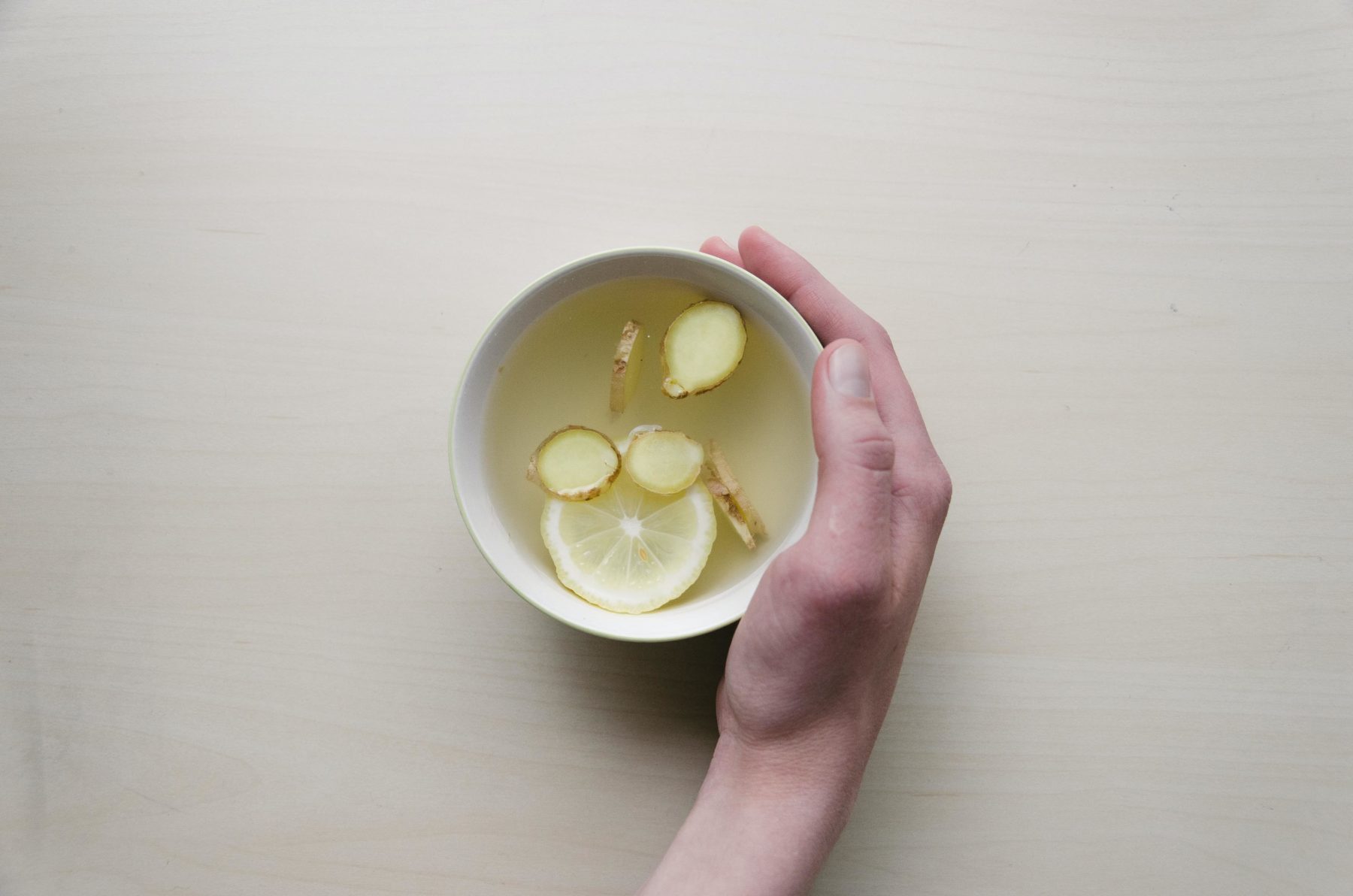Health Benefits of Ginger Tea

Ginger root is a popular spice that many people recognize and probably even have in their kitchen. What people often do not realize, however, is that this same spice (in either its fresh or dried form) has a number of health benefits. So, while it might give your apple pie a zesty kick or make your stir-fry stand out, consuming ginger can be a key addition to a healthy lifestyle.
As a Doctor of Acupuncture and Oriental Medicine (DAOM) with experience working in the herbal supplement industry, I think about ginger in its two distinct forms: fresh and dried. Modern research supports this distinction and has demonstrated differences in the chemical composition of these two forms.
Chinese medicine practitioners use the fresh form (生姜: shēng jiāng) in the early stages of common colds — particularly those with chills, stiff neck and cough — and for nausea. The dried form (干姜: gān jiāng) is primarily used to treat digestive complaints, because it is considered to have a warming effect on the digestive system, which helps to alleviate symptoms like abdominal pain and/or bloating, loose stools and belching. One of the earliest herbal texts in Chinese medicine, the “Shénnóng Běncǎo,” mentions that ginger helps to “open cognitive pathways” and/or “facilitate spiritual clarity.” Sounds pretty good, right?
Modern research indicates that ginger has a number of health benefits based on its antioxidant, antimicrobial and anti-inflammatory properties. A study conducted by Columbia University’s New York Nutrition and Obesity Research Center found that adding dried ginger powder to hot water may even help regulate the appetite. In addition, multiple studies have reported that ginger root is an effective treatment for the nausea and vomiting (aka “morning sickness”) that some women experience early on in their pregnancies.
The information provided here is not intended as medical advice. Ginger root is great, but it is not for everyone. In fact, there is some evidence to suggest that ginger may interact with certain anticoagulant and antiplatelet drugs. Thus, please check with your primary care physician before adding any herb or supplement to your health regimen.
EASY RECIPE FOR FRESH GINGER ROOT TEA:
Dried ginger root tea can be found in the tea section of most grocery stores. Here’s a recipe that uses the fresh root, which is usually found in the produce section.
- Bring 4 cups of water to a boil.
- Wash, then slice fresh ginger root into 4-7 quarter-sized pieces (depending on desired strength).
- Add ginger root slices, cover and reduce heat to medium-high.
- Cook for 20-30 minutes.
- Remove from heat and let cool to desired temperature.
- Enjoy! (add honey or coconut sugar if desired)
- Store remaining liquid in refrigerator (consume within 3 days)






